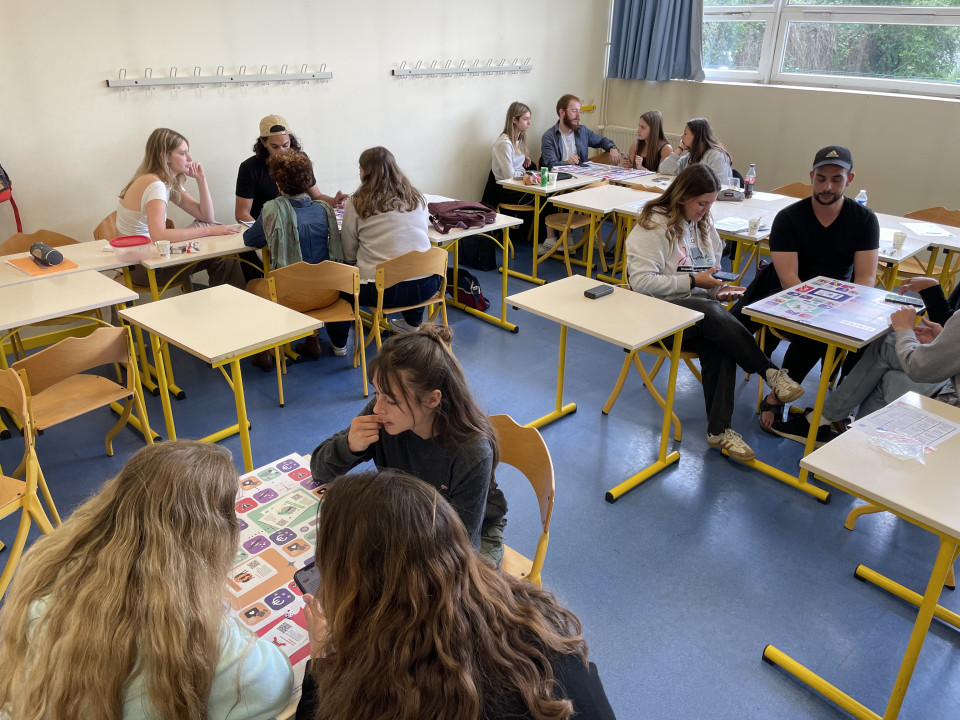Did you know?
- 41% of young people aged between 18 and 34 believe in at least one conspiracy theory (Source: France Info).
- In the European Union, 2 out of 3 citizens say they are exposed to fake news every week (source: Council of Europe).
- And have you ever heard of the French law of 2018 against the manipulation of information, also known as the "fake news" law? (Source: Legifrance)
With social networks now the main source of information for many - especially young people - misinformation is spreading faster than ever. A better understanding of the mechanisms by which fake news is disseminated means protecting our citizenship and strengthening democracy. It is therefore important to raise awareness among young European citizens of the mechanisms used to disseminate fake news and its impact on their daily and civic lives.
The fight against fake news and disinformation is a complex challenge, and national and European actors are working together to develop educational skills to promote responsible and committed digital citizenship.
Faced with this challenge, Pistes Solidaires is investing in the fight against disinformation through the European "Media Masters" project. The aim is to raise awareness among young Europeans of the issues surrounding the manipulation of information, while at the same time encouraging them to become responsible digital citizens.
To this end, two events were organised in early May:
- On the 5th of May, at the Institut du Travail Social de Pau (ITS), with students in social and family intervention.
- On the 6th of May, during the monthly Café des Langues, in partnership with the Centre Information Europe Direct Pau Pays de l'Adour, with French and international students.
These meetings concluded with a session of the "Media Masters" educational game, a tool designed to provide a better understanding of fake news while having fun.
These events were much more than just moments of exchange: they were real opportunities for reflection and learning. One of the main aims was to get participants to question their own knowledge and sharpen their critical thinking when faced with information. In addition to self-training, the aim was also to develop the ability to raise awareness among others, particularly students at the Institute of Social Work, who are called upon to work with vulnerable groups who are often more exposed to the mechanisms of misinformation. For the international students, these events provided an opportunity for enriching intercultural dialogue, enabling them to compare perceptions, media practices and reactions to fake news in different cultural and national contexts.
A number of activities were carried out with the participants to help them distinguish between the different types of misinformation. If you would like to find out more, take a look at this infographic (Link to the infographic 2).
The European Union on the front line against disinformation
Faced with the rise of fake news on social networks, the European Union has stepped up its efforts to ensure a safer, more transparent and better regulated digital space. One of the major steps taken in this fight is the adoption, in 2022, by the European Parliament of the Regulation on digital services, better known as the DSA (Digital Services Act).
This legislation aims to strengthen the responsibility of online platforms (such as Facebook, X, Instagram, YouTube and TikTok) in the fight against illegal content, misinformation and manipulation of information. The aim is to protect users' rights while promoting a more reliable digital environment, particularly for young European citizens.
But how can you tell the real from the fake in the flood of information circulating every day?
There are tools to help you see more clearly. The European Union supports a number of platforms for checking facts and deciphering the news. Among them, the Toute l'Europe website regularly offers detox articles, detailed analyses and educational resources to help you understand European issues and spot false information.
Taking a few minutes to check a news item is already an act of good citizenship. Get informed, compare sources, and become a player in the fight for fairer information!
